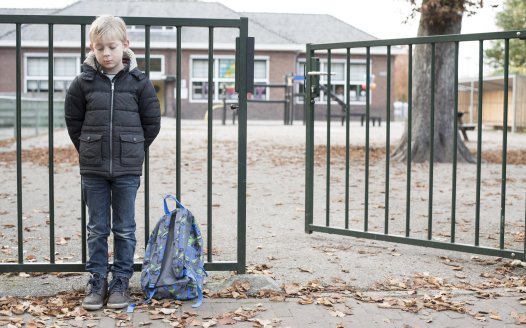Faith schools mustn’t be allowed to stymie young people’s sexual health and well-being
Posted: Thu, 12th Jan 2017 by Stephen Evans
Political sensitivity about faith schools is getting in the way of providing evidence-based, age-appropriate sex and relationships education (SRE) to all children. We can't wait forever for the Government's proposals on SRE, writes Stephen Evans.
The latest legislative attempt to introduce statutory sex and relationship education in schools was blocked this week, when Conservative MPs voted down an amendment to the Children and Social Work Bill which would have made providing SRE a requirement for all schools, including academies.
From the debate, it is clear that faith schools provide a major hurdle for anyone seeking to safeguard children and ensure that all young people are equipped to navigate the realities of modern life.
The proposals, tabled by an all-female group of MPs led by Labour's Stella Creasy, would have placed schools under a duty to ensure that the personal, social and health education they provide included age appropriate sex and relationships education covering same-sex relationships, sexual consent, sexual violence, and domestic violence.
The provisions, included in New Clause 11, contained a number of concessions to religion, yet still the Government didn't feel able to support it.
Opposing the proposals, Conservative MP Simon Hoare said some form of "protection" was needed for those who run faith schools to ensure that they can make their position "absolutely clear".
The provisions already required the information provided to pupils to be "religiously diverse". It may not be immediately obvious what this means in an SRE context, but it was helpfully interpreted as meaning "religiously sensitive" by those advancing the proposals.
It will be a massive disservice to children, particular those from orthodox religious backgrounds, if the Government acquiesces to religious parents' and faith schools' demands to allow religious doctrine to get in the way of accurate and balanced SRE. Religious teaching will be mixed with fact-based SRE, giving young people a mixed message, weighting facts with doctrinal overtones.
More worryingly for inclusiveness is if that ethos is anti-homosexual, anti-choice or anti-sex-outside-of-marriage it can specifically exclude students and provide a context of a conflict between faith values, sexuality and sexual orientation, leaving children isolated and open to victimisation or bullying. Within this context, any mention of acceptance would appear as tokenism only.
Before voting against the amendment, Junior Education Minister Edward Timpson accepted that "Now is the time to make sure that every child has access to effective, factually accurate, age-appropriate sex and relationships education". But he said it was a "sensitive issue" and insisted "we must attempt to allow everybody with a view a chance to make their case".
Mr Timpson committed the government to bringing forward its own plans on sex and relationship education in due course. But noises coming from the Government give grounds to the fear that some schools with a religious ethos may be permitted to fail their students when it comes to their right to receive comprehensive, objective and fact-based SRE.
The Government will of course insist that it is only being pragmatic when it says it wants to "ensure that we bring as many people with us as possible." This must not translate into betraying the young people educated in faith-based settings, many of whom will be those most in need of the protection that good quality SRE offers. Their right to education is as valid any anyone else's.
At the same time, we mustn't forget that many children aren't in faith schools because their parents want a religious upbringing for them, they're simply tolerating the churchy aspects of their local school.
However "sensitive" some may find this issue, when it comes to children and young people's sexual health and well–being, religion must take a back seat.







